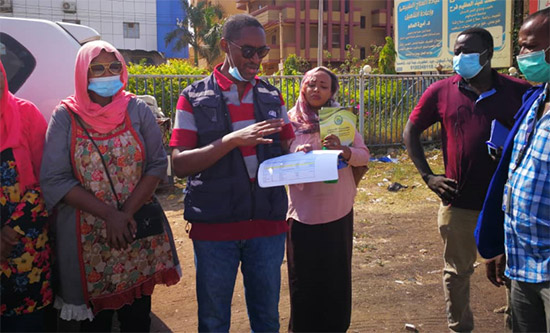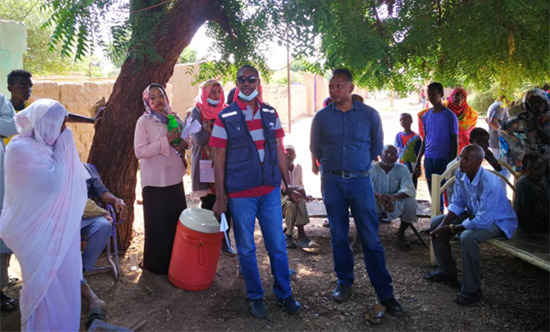
9 September 2020 - Following torrential rains and floods in Sudan, WHO is providing surgical medicines and supplies, cholera medicines, and other essential medicines and supplies to affected communities.
To date, the floods have killed 100 people, injured 46 more, and affected almost 500,000 people in 16 of the country’s 18 states. Almost 50,000 homes have been destroyed, and 52,000 more severely damaged. Villages in all states have been inundated causing damage to infrastructure including dams, bridges and highways, with the most severely affected being Khartoum State, North Darfur, Sennar states. Drainage systems are unreliable as water is stagnant, and access to clean drinking water and sanitation systems has been severely affected.
Almost 30 health facilities were reportedly damaged as a result of the floods, although there has been no major interruption to their services. However, Sudan’s health system continues to suffer from years of underfunding, staff shortages, weakened infrastructure, and the lack of equipment, essential medicines and supplies. Medical supplies in the country are estimated at about 25% of actual needs, and shortages have significantly increased over the past few months.
Supplies have been delivered to ensure water quality and infection prevention and control measures are in place in affected areas, as well as supplies to prevent the spread of vector-borne diseases such as dengue, chikungunya, and malaria. Ten environmental officers have been deployed across the country to support national efforts in water, sanitation, and vector-control efforts.
WHO is also supporting 10 mobile health clinics in Blue Nile, North Darfur, Red Sea, Kassala and Central Darfur, and an additional four clinics will start working in Khartoum in the coming days.

Together with partner agencies and the State Ministry of Health, WHO has identified health needs, and responded to 128 disease alerts, including diarrhea, measles, COVID-19, and others. WHO is also working closely with the government, UNICEF and other partners on a response to the ongoing Vaccine Derived Poliovirus type 2 (cVDPV2) outbreak.
Malaria cases are already increasing and there is concern of widespread infection. Stockouts and shortages of malaria treatments are reported on federal and state levels. Cholera is endemic in Sudan, and chikungunya cases have been reported in Eastern Chad in the border area with West Darfur.
Further heavy rains are expected in the coming weeks over greater Darfur, the Ethiopian and Eritrean highlands. Increasing cases of water-borne and vector borne diseases are set to create an additional burden to an already overstretched health system.
In preparation for this year’s rainy season, WHO prepositioned essential medicines and medical supplies in the country in June 2020 and distribution is ongoing. More than 1,800 rapid response team members in all localities across the country were trained to detect and respond to infectious diseases and other public health threats -- including COVID-19, infection prevention and control, surveillance, case management, and, contact tracing.
As part of its ongoing preparedness and response efforts for the floods, WHO will continue to prioritize water, sanitation and vector-control measures to prevent widespread outbreaks of water and vector-borne diseases, and to reduce the burden on the health system.








